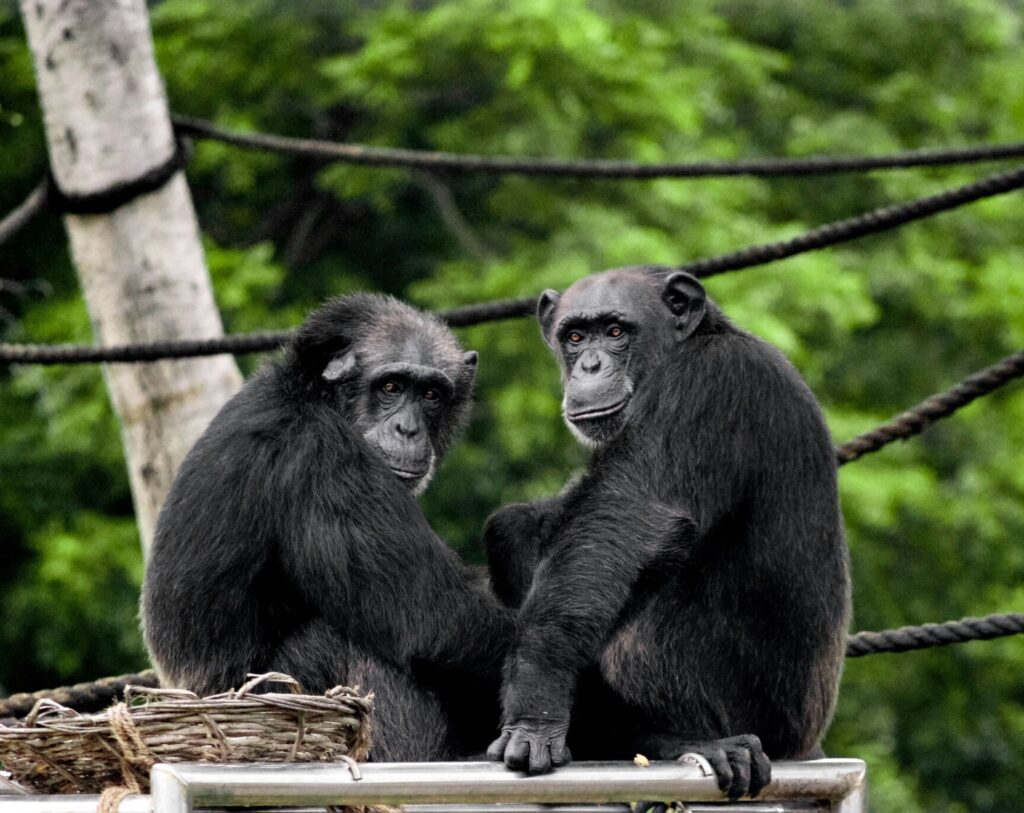This post is also available in Dutch.
Comedian and writer Tim Minchin once said: we’re just monkeys in shoes. This aptly illustrates the message of Frans de Waal’s work. During his career, he studied the behavior of countless primates and revealed the remarkable similarities between humans and apes.
Lesson 1: Chimpanzees do politics
In his early career, Frans de Waal studied the social hierarchy of a colony of chimpanzees in the Arnhem Zoo. He observed that the alpha position – the highest rank in the social hierarchy – was not held by the largest or most aggressive monkey, but by the monkey that was best at building alliances and offering the most protection. These leaders built their power base by spending time with their ‘subjects’ and doing them favors.
He also saw that the social ranking of this group of monkeys is very fluid, with regular changes of the alpha chimp. He discovered that changes in power did not come about through violence and fanfare. On the contrary, takeovers took place after a long process of building coalitions and undermining the current leader. In other words, the chimpanzees were doing politics. Just like humans, these primates demonstrate the ability to cooperate, resolve conflicts, empathize and even have a form of morality – qualities that are thus not unique to humans.
Lesson 2: Monkeys also have empathy and morality
In De Waal’s classic fairness experiment, two capuchin monkeys had to pass a rock to a researcher. For this action, they were rewarded with a piece of cucumber. Over time, the reward for one of the monkeys turned into a grape – which they like a lot better than the cucumber. What happened then? As soon as the other monkey realized this, he protested loudly, since that is not fair! With this experiment, De Waal once again shows that empathy and morality are not uniquely human qualities but are deeply rooted in our shared evolution.
Lesson 3: Gender roles in primates are not strictly binary
There are several examples of a flexible division of gender roles in the animal world. Within primate groups, it is not uncommon for some females to help defend the territory and some males to prefer to take on caring duties. Individuals who deviate from the norm are not punished or shunned for this. An example that De Waal describes is that of Donna. Donna is a female chimpanzee who, as a child, preferred to play with the boys and spent her entire life hanging out with the males from the colony. This never caused any problems. The rest of the group accepted Donna for who she was.
The core message of Frans de Waal’s work is the recognition of the fundamental connection between humans and animals. It may be accepted that we are descended from apes, but Frans de Waal reminded us again and again that we are not that far removed from our closest relatives.
Credits
Author: Lucas Geelen
Buddy: Eline de Boer
Editor: Eline de Boer
Translation: Helena Olraun
Editor translation: Swantje Neil
Photo by Satya deep on Unsplash
